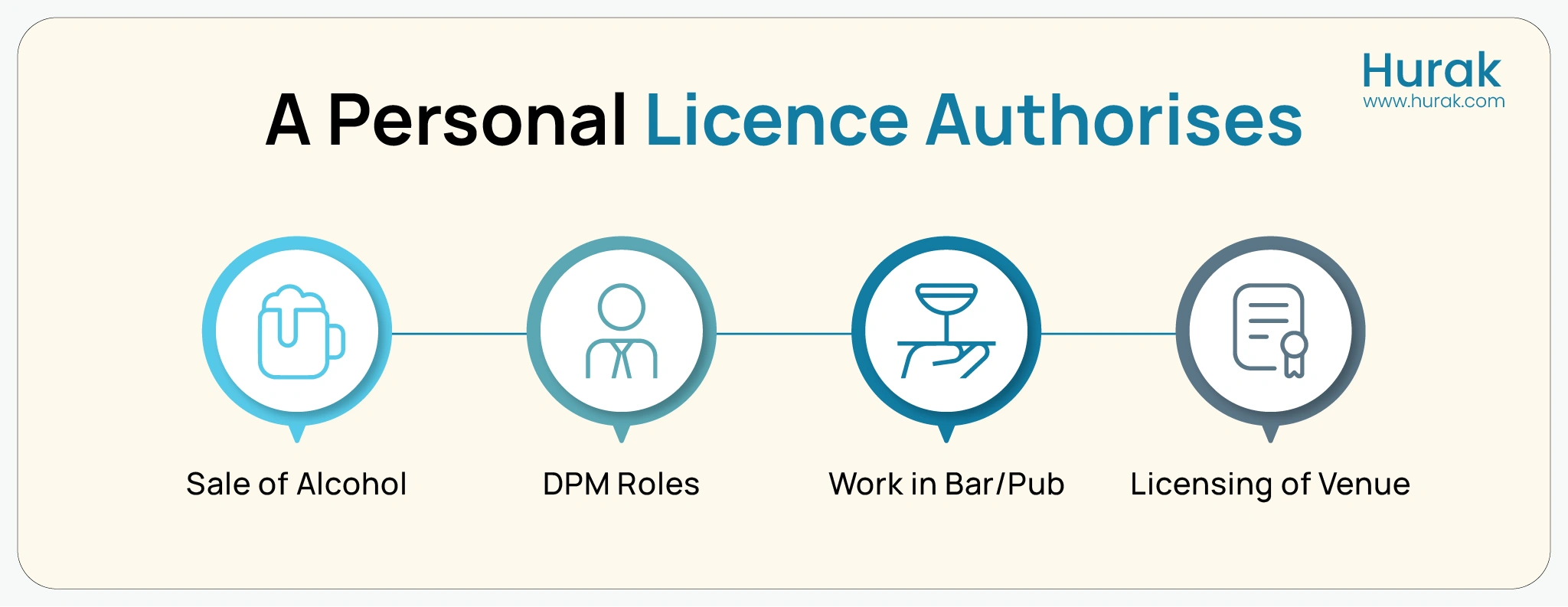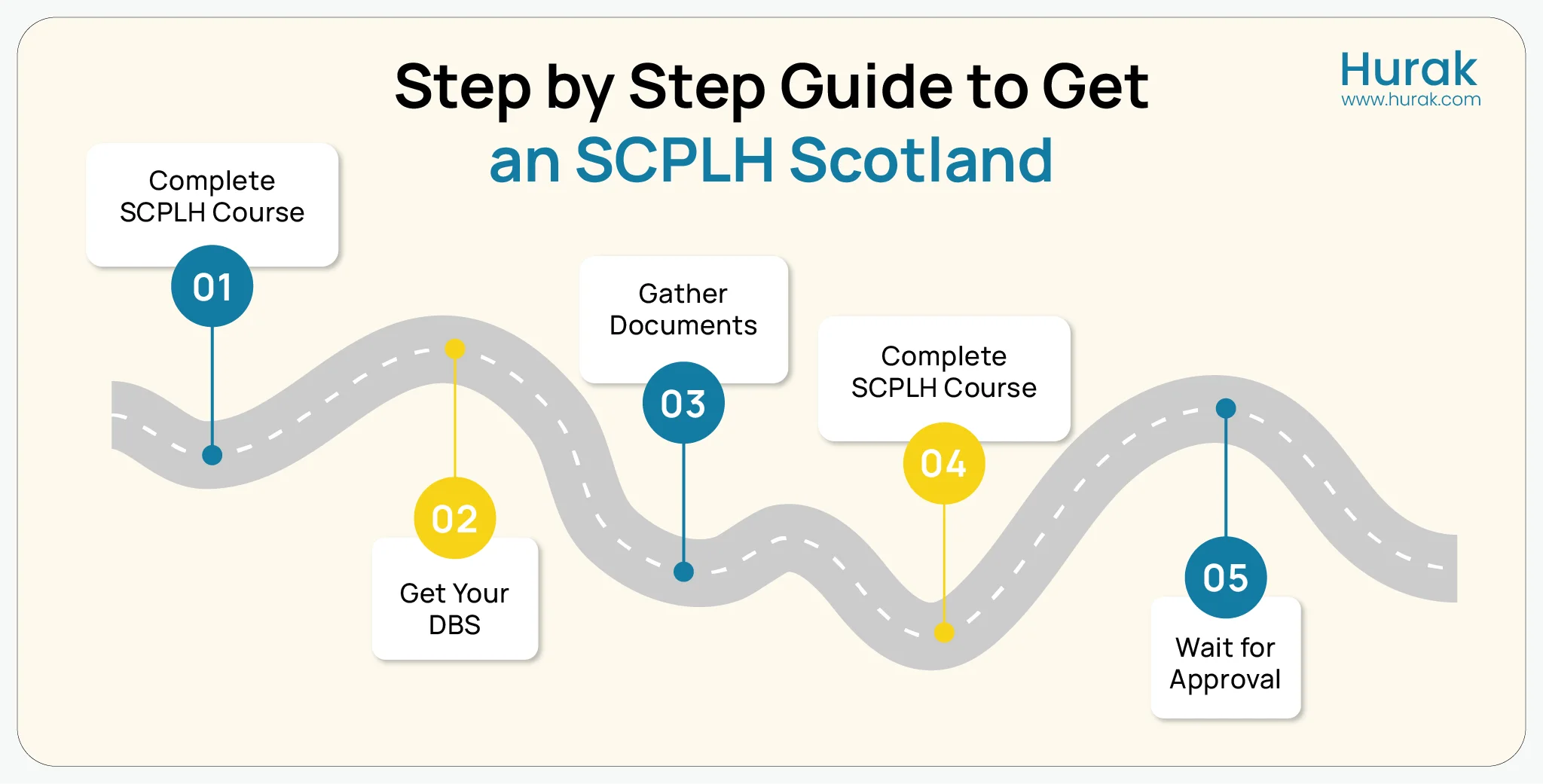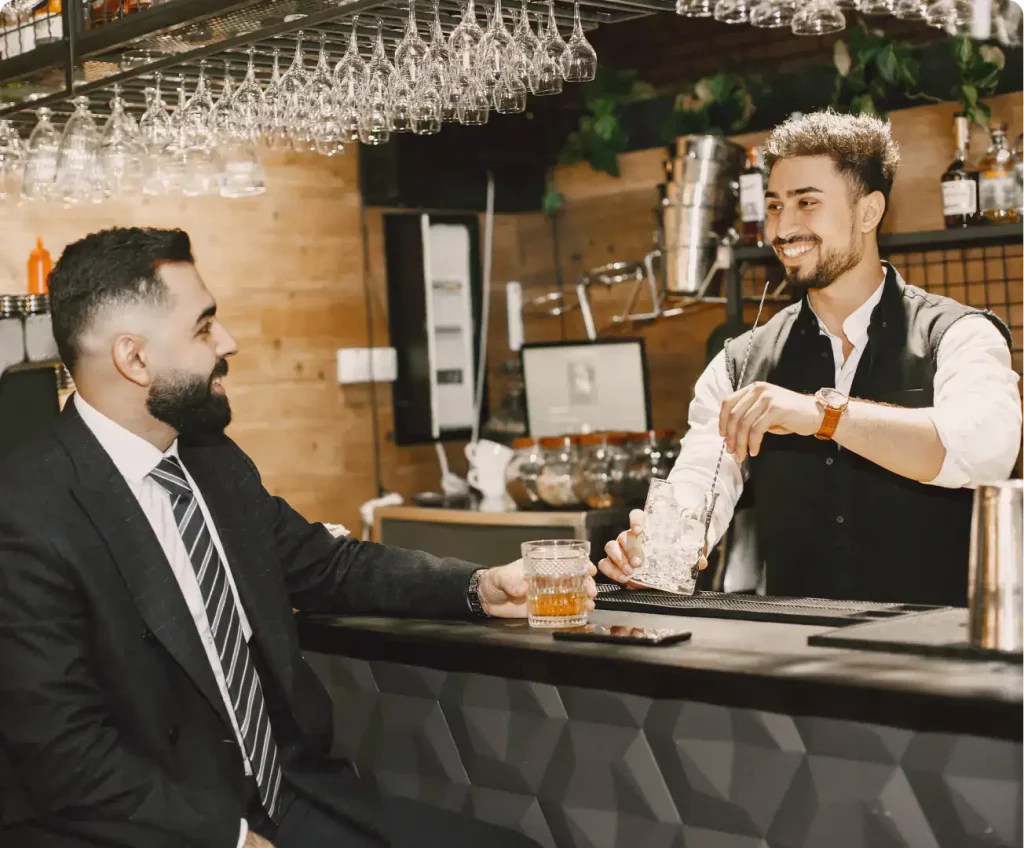
If you want to sell alcohol in Scotland, you need a personal licence. This licence is essential because it allows you to be the person in charge of authorising alcohol sales in a venue, like a bar, pub, or restaurant.
Getting a personal licence is a process, but it’s straightforward if you know what to do. In this guide, we’ll explain exactly what steps you need to take, who can apply, and what documents you’ll need. By the end, you’ll know everything to get your personal licence and start selling alcohol legally.
What Is a Personal Licence and Do You Need One?
In Scotland, a personal licence is required if you’re responsible for authorising the sale of alcohol in a licensed venue. This means that if you’re managing a pub, restaurant, or bar, or if you’re the person in charge of alcohol sales, you must have a personal licence.
To be clear, there are two types of licences you need:
- Premises Licence: This is for the venue itself (e.g., a pub or restaurant).
- Personal Licence: This is for the person who manages or supervises alcohol sales at the venue.
If you’re going to be the one making sure alcohol is appropriately sold, you’ll need a personal licence.
Before you begin the process of applying, it helps to know exactly what a personal licence allows you to do. This licence isn’t just a legal requirement, it’s a key that gives you certain responsibilities and privileges when it comes to selling alcohol in Scotland. Whether you want to run a pub, apply for a Designated Premises Manager (DPM) role, or work in any venue where alcohol is sold, having a personal licence shows you understand how to do so legally and safely.
To make things clear, here’s a quick visual summary of what being a personal licence holder in Scotland actually means:

Who Can Apply for a Personal Licence in Scotland?
To apply for a personal licence in Scotland, there are some basic requirements you need to meet:
- Age: You must be at least 18 years old.
- Training: You must complete an accredited SCPLH training course (Scottish Certificate for Personal Licence Holders).
- DBS Check: You must pass a Disclosure Scotland (DBS) check to make sure you don’t have any serious criminal convictions.
- Right to Work: You must be legally allowed to work in the UK.
As long as you meet these basic requirements, you can move forward with applying for your personal licence.
Step-by-Step: How to Apply for a Personal Licence
Now let’s review the steps you must follow to apply for a personal licence. It’s essential to take your time and follow each step carefully.
Step 1: Complete the SCPLH Training Course
The first step is to complete the Scottish Certificate for Personal Licence Holders (SCPLH) course. This course will teach you all the necessary information about alcohol laws, including the rules for selling alcohol responsibly.
You can find accredited SCPLH courses online or in person. Once you finish the course, you’ll get a certificate, which you’ll need for the next steps.
Step 2: Get Your DBS (Disclosure Scotland) Check
After completing your SCPLH training, you’ll need to get a Basic Disclosure (DBS check) to ensure you have no serious criminal convictions. You can apply online.
It’s essential to apply for this check within one month of completing your training. This ensures everything is up-to-date when you submit your application.
Step 3: Gather Your Documents
Once you have your SCPLH certificate and DBS check, you must gather a few more documents. These are the documents you’ll need to submit with your application:
- Your SCPLH Certificate
- The Disclosure Certificate from Disclosure Scotland
- A copy of your proof of ID (like a passport or driver’s license)
- A proof of address (such as a recent utility bill)
- Right-to-Work evidence, if needed (such as your visa or work permit)
Make sure all your documents are up-to-date and precise before submitting them.
Step 4: Submit Your Application
Now that you have your documents ready, it’s time to submit your application to your local Licensing Board. You will need to send them your completed application form along with your supporting documents.
You can find the right Licensing Board for your area by using the GOV.UK licensing tool.
Step 5: Wait for Approval
Once you’ve submitted your application, it will be reviewed by your local Licensing Board. The process usually takes between 4 and 8 weeks. They will check everything to make sure you’ve met all the requirements.
If your application is approved, you will receive your personal licence, and you can start authorising alcohol sales at your venue.
Need a quick summary?
If you’re looking for a faster way to remember the process, here’s a simple breakdown of the 5 steps we just went over. This makes it easier to track where you are and what’s next when applying for your personal licence.

How Long Does a Personal Licence Last?
A personal licence is valid for 10 years from the date it’s issued. After 10 years, you’ll need to renew it.
Every 5 years, you will also need to complete a refresher course to make sure you’re up-to-date on alcohol laws and regulations. This course is shorter and typically less expensive than the full SCPLH course.

Looking for Scottish Personal Licence Courses?
What Happens If You Don’t Renew Your Licence?
If you let your personal licence expire and don’t renew it on time, you will no longer be legally allowed to authorise alcohol sales. This means you could be breaking the law if you continue to sell alcohol at your venue.
If your licence expires, you must apply for a new one, which can take several weeks. So, it’s essential to keep track of the expiry date and renew your licence well before it runs out.
Personal Licence Holder Responsibilities
Once you’ve got your personal licence, there are a few crucial responsibilities you must follow:
- You need to make sure that alcohol is sold responsibly in your venue.
- You must ensure that staff who are selling alcohol are adequately trained and know the rules.
- You will need to oversee the Challenge 25 policy, which means checking IDs for anyone who looks under 25 when buying alcohol.
These responsibilities are part of making sure your venue is following the law and selling alcohol safely.
Do You Need to Be Present to Sell Alcohol?
You don’t have to be physically present at the venue at all times, but there must always be someone with a personal licence at the venue when alcohol is being sold. This person is responsible for ensuring that alcohol sales are managed correctly and safely.
Renewing Your Personal Licence
When it’s time to renew your personal licence, the process is similar to your initial application. You must submit a renewal application to your Licensing Board and pay a renewal fee.
If you don’t renew your licence on time, you may lose your right to sell alcohol. So, make sure to apply for renewal well in advance of your licence’s expiry.
Explore other courses on Hurak
- Hospitality Training Courses
Broaden your skills with courses tailored for the hospitality industry, including food hygiene and customer service, to complement your personal licence. - Personal Licence Training Courses (England & Wales)
If you’re interested in obtaining a personal licence outside Scotland, explore courses designed for England and Wales that cover the APLH qualification. - Personal Development Courses
Build confidence, improve leadership skills, and take your career to the next level with these practical personal development courses. - Sales Courses
Learn how to sell more effectively, improve customer interactions, and close deals confidently, ideal for anyone in retail, hospitality, or customer-facing roles.
Conclusion
Getting a personal licence in Scotland is an essential step if you want to sell alcohol legally. While the process involves a few steps, including training, DBS checks, and document submission, it’s simple to follow as long as you keep everything organised.
If you’re ready to get started, make sure to complete your training and DBS check, gather the necessary documents, and apply through your local Licensing Board. With the proper preparation, you’ll be able to manage alcohol sales safely and responsibly in no time.
Ready to get your personal licence? Start with the accredited SCPLH course and get on your way to selling alcohol responsibly!
FAQ’s
What is a personal licence?
A personal licence is required if you want to be the person responsible for authorising the sale of alcohol in a licensed venue, like a bar or restaurant. It ensures that alcohol is sold legally and responsibly, and you must hold this licence if you’re in charge of alcohol sales at a venue.
Do I need a personal licence to sell alcohol in Scotland?
Yes, if you’re the person managing or supervising the sale of alcohol at a venue, you need a personal licence. This applies to pubs, bars, restaurants, and other places where alcohol is sold.
How old must I be to apply for a personal licence in Scotland?
You must be at least 18 years old to apply for a personal licence in Scotland.
What training do I need to get a personal licence?
To get a personal licence, you need to complete the Scottish Certificate for Personal Licence Holders (SCPLH) training course. This course teaches you about alcohol laws and how to sell alcohol responsibly.
How long does the personal licence process take?
It usually takes about 4 to 8 weeks for your application to be processed and approved by your local Licensing Board.
What documents do I need to apply for a personal licence?
You will need to provide the following documents:
- Your SCPLH Certificate
- Disclosure Scotland (DBS) Certificate
- Proof of ID (passport or driver’s license)
- Proof of address (e.g., utility bill)
- Right to Work evidence, if required
How much does it cost to apply for a personal licence in Scotland?
The application fee for a personal licence is usually around £50. Additional costs may include training and DBS check fees.
Do I need to renew my personal licence?
Yes, your personal licence is valid for 10 years. After that, you will need to renew it. You will also need to take a refresher course every 5 years to ensure you’re up to date with the latest laws and regulations.
What happens if I let my personal licence expire?
If your personal licence expires and you don’t renew it on time, you can no longer legally authorise alcohol sales at your venue. You must apply for a new licence, which can take several weeks.
Can I sell alcohol if I don’t have a personal licence?
No, selling alcohol without a personal licence is illegal in Scotland. It’s essential to have this licence if you’re responsible for alcohol sales at any licensed venue.
Can I be the personal licence holder for multiple venues?
Yes, you can hold a personal licence for multiple venues, as long as you’re legally responsible for alcohol sales at each venue. However, there must always be a personal licence holder on-site whenever alcohol is being sold.
What responsibilities do I have as a personal licence holder?
As a personal licence holder, you are responsible for ensuring alcohol is sold legally and safely. This includes ensuring staff are trained, enforcing the Challenge 25 policy (asking for ID from customers who look under 25), and ensuring alcohol is sold in a responsible way.
Can I apply for a personal licence with a criminal conviction?
It depends on the type of conviction. If you have a serious criminal record, especially related to alcohol or drugs, your application may be rejected. However, minor convictions might not affect your eligibility. The Licensing Board will review your criminal history as part of the application process.
Do I need a personal licence to manage a wedding or private event bar?
Yes, if you are responsible for the sale of alcohol at a wedding or private event, you need a personal licence. This applies whether the event is at a venue or a temporary event.
How do I find the right Licensing Board for my area?
You can use the GOV.UK licensing tool to find the correct Licensing Board in your area.





